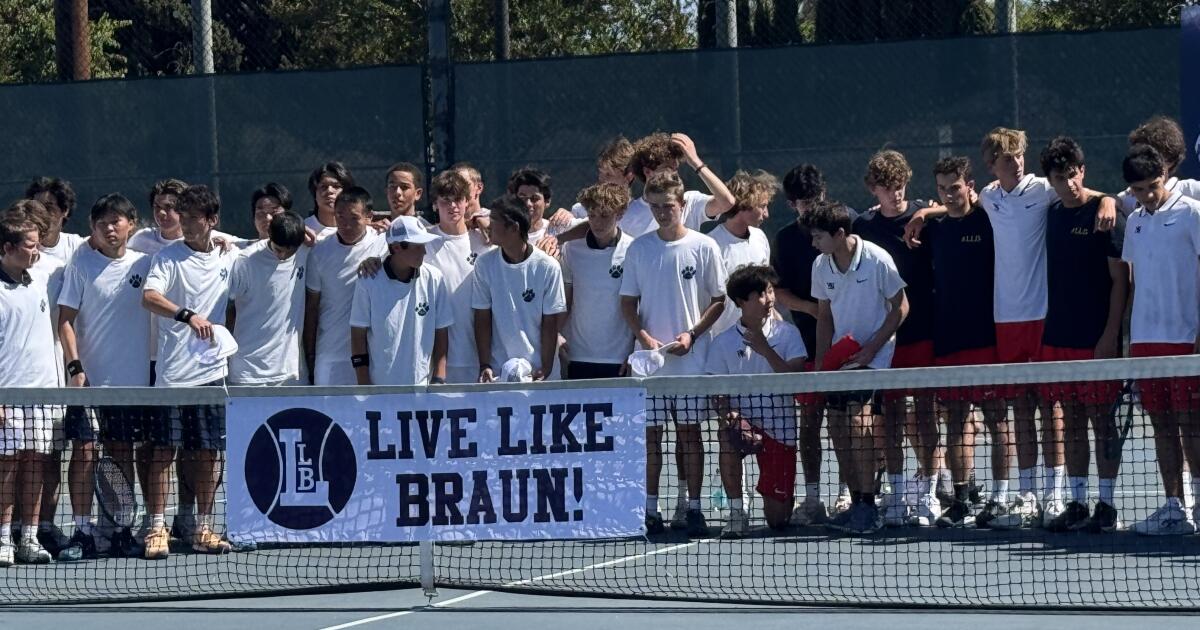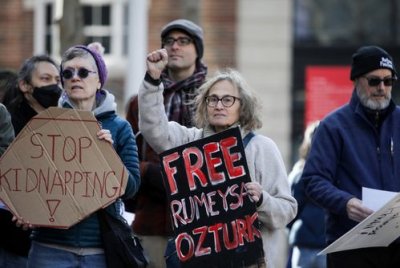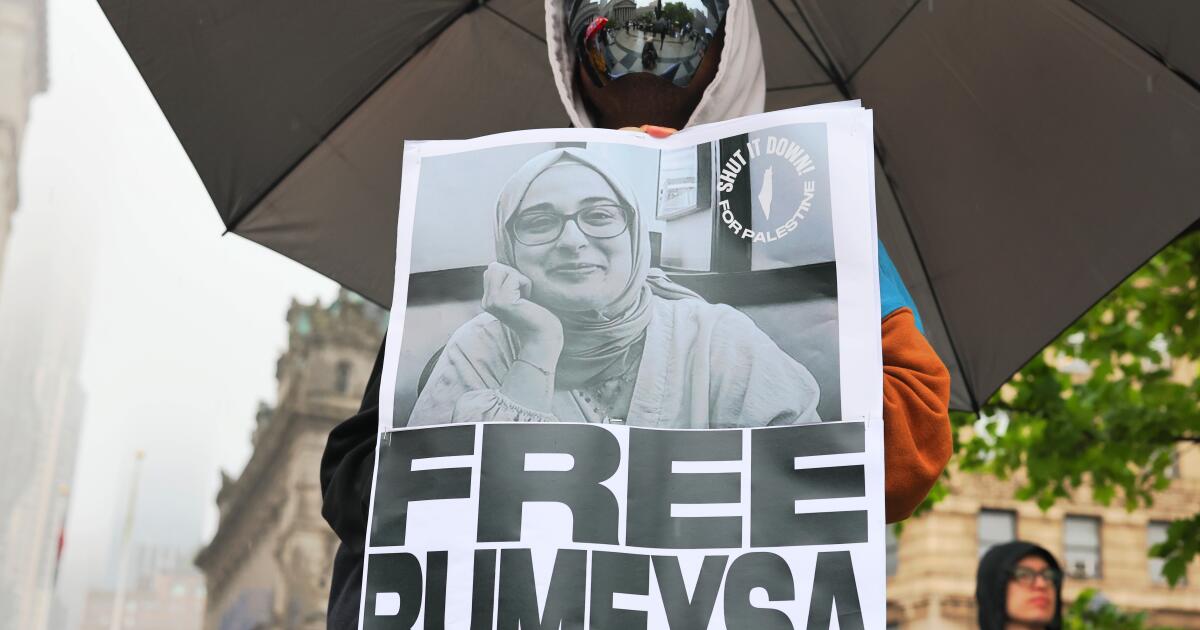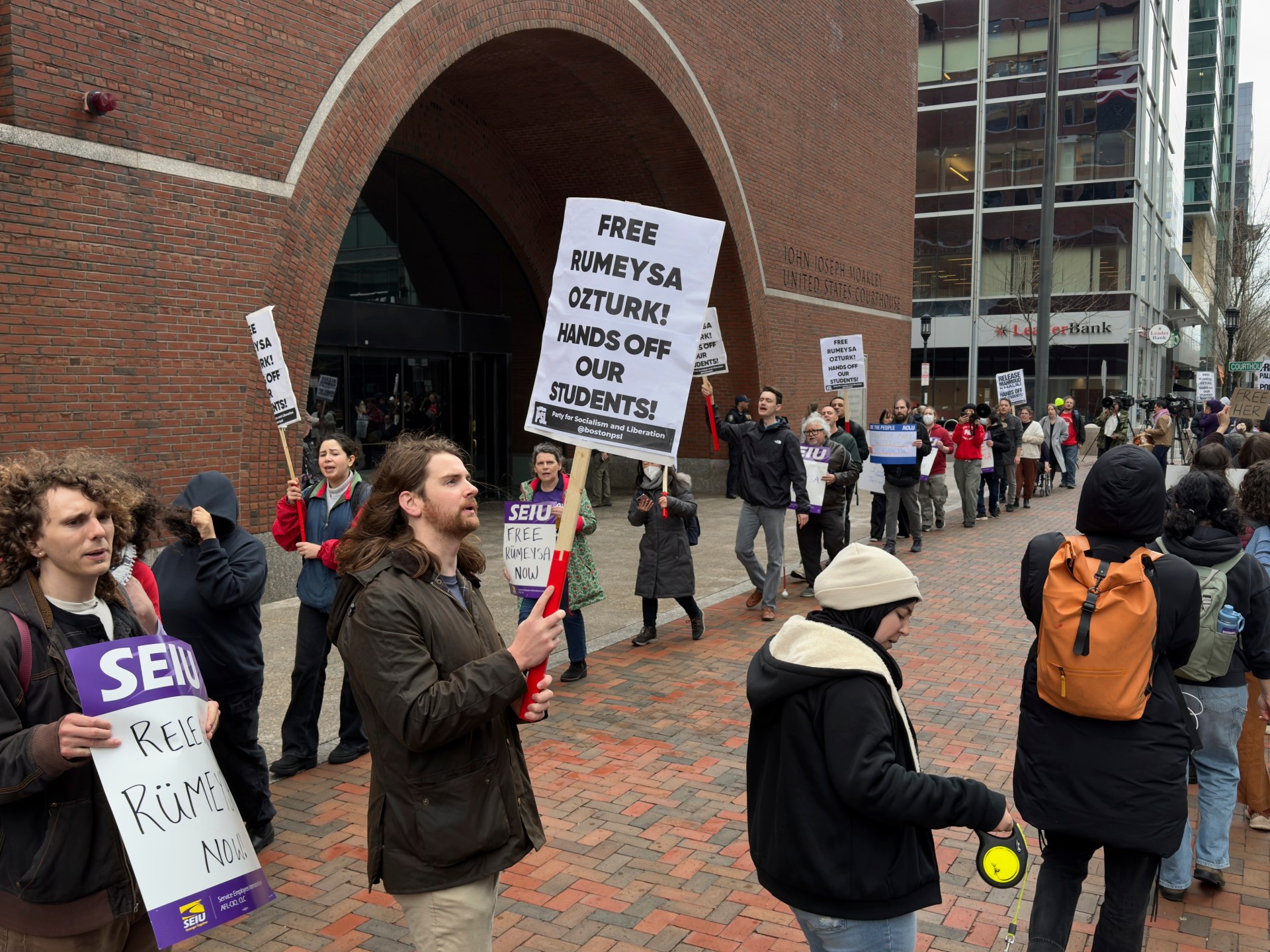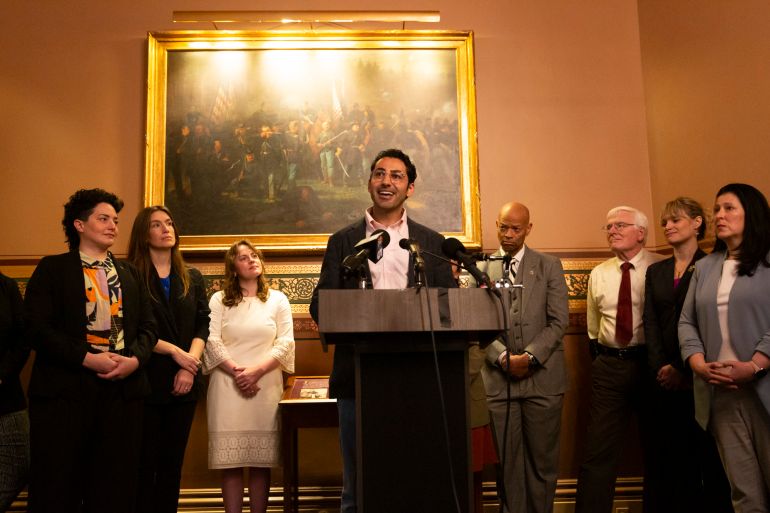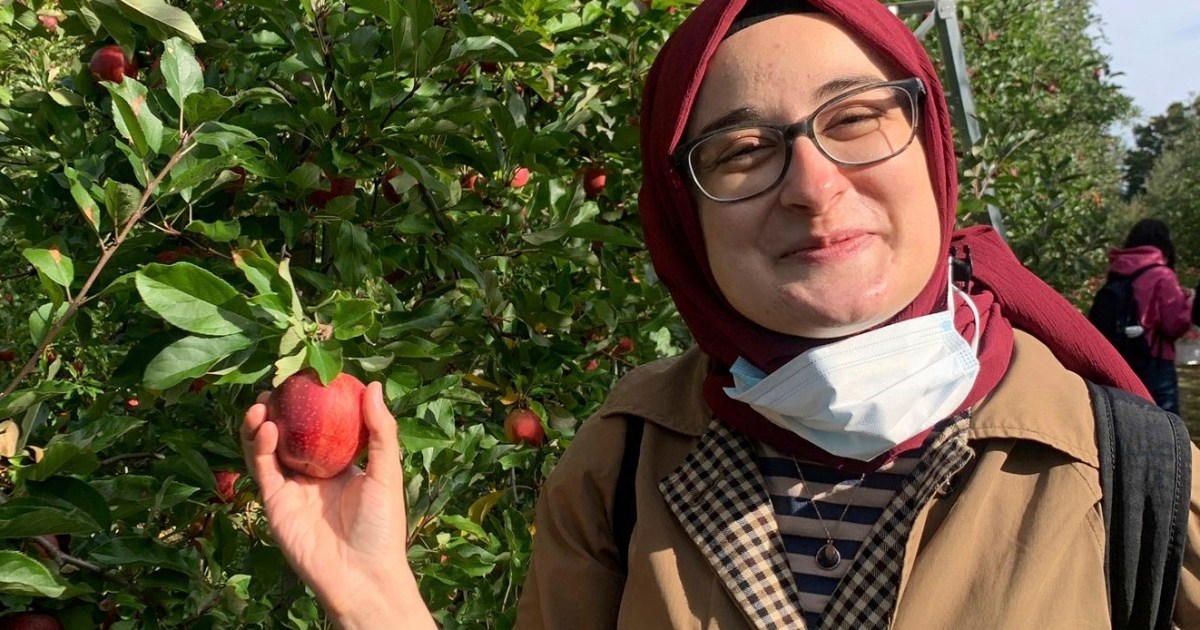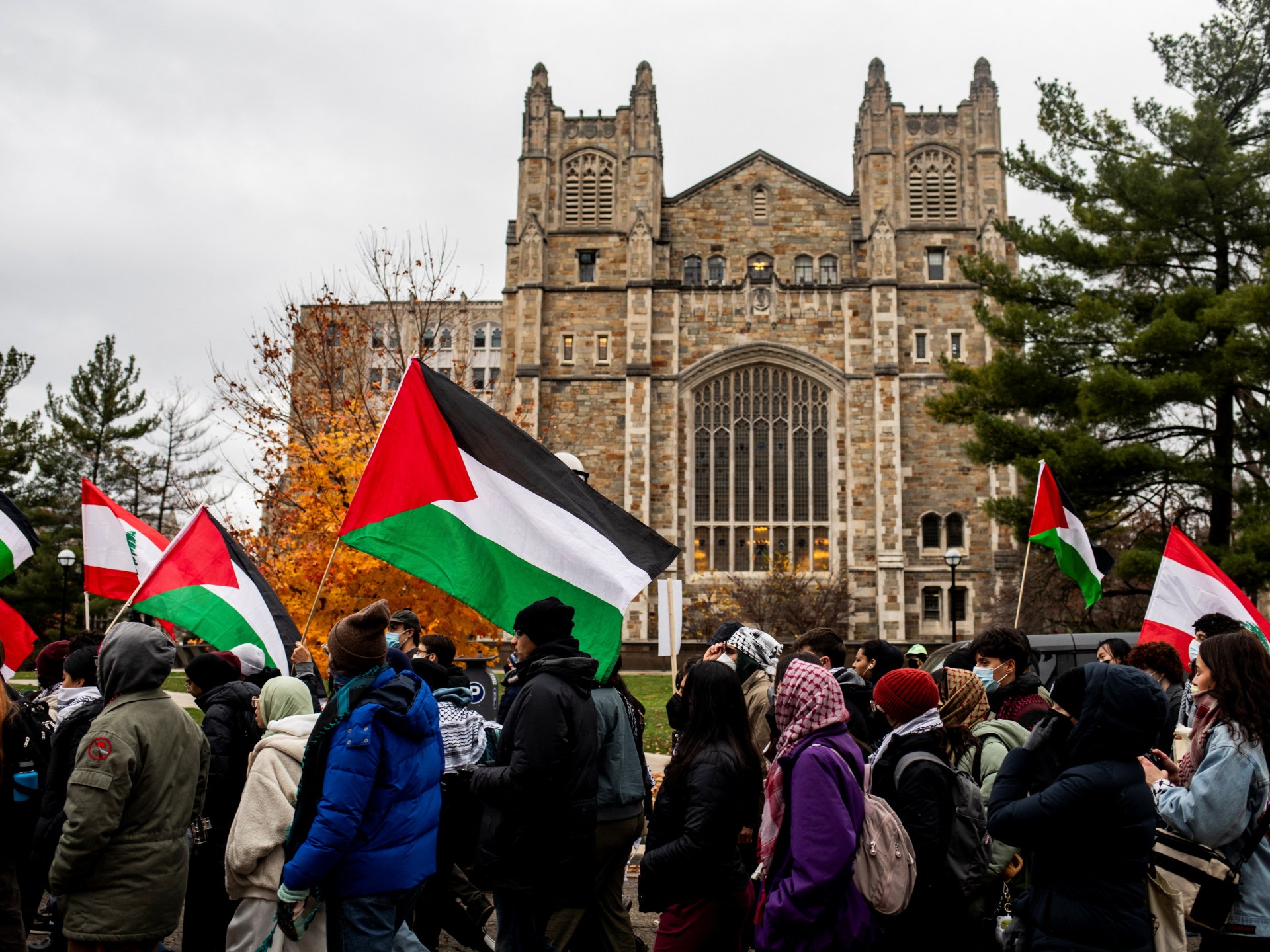Rumeysa Ozturk, a Tufts University doctoral student detained as part of President Donald Trump’s crackdown on pro-Palestine visa holders, has been ordered to be released from immigration custody.
On Friday, Vermont-based US District Judge William Sessions ruled that Ozturk’s “detention cannot stand”.
“The court finds that she does not pose a danger to the community, nor does she present a risk of flight. The court orders the government to release Ms Ozturk from custody immediately,” Sessions said.
Lawyers for Ozturk, a Turkish citizen in the US on a student visa, had argued that the Trump administration’s efforts to detain and deport her violated her constitutional rights, including to free speech and due process.
Sessions appeared to side with the legal team’s argument, saying Ozturk’s “continued detention potentially chills the speech of the millions and millions of individuals in this country who are not citizens”.
Ozturk’s lawyer, Mahsa Khanbabai, said in a statement she was “relieved and ecstatic” about the judge’s order but that it came far too late.
“When did speaking up against oppression become a crime? When did speaking up against genocide become something to be imprisoned for?” she said.
The 30-year-old Ozturk had appeared at the Vermont hearing via video from a detention centre in Louisiana, wearing an orange jumpsuit and a hijab.
During her testimony, she recounted being surrounded and detained by plain-clothed Immigration and Customs Enforcement (ICE) agents near her student housing in Somerville, Massachusetts, on March 25. Surveillance video of that incident later spread online, sparking outrage.
She said she suffered a series of asthma attacks, 12 in total, as she was being transferred to Louisiana. The first came at the airport in Atlanta, she said, and she did not have all of the medication she needed.
“I was afraid, and I was crying,” she said.
The doctoral student told the judge her studies related to community engagement in children in warzones. She was among dozens of student visa holders and permanent residents targeted by the Trump administration for pro-Palestine advocacy.
The administration has relied on an obscure provision of the 1952 Immigration and Nationality Act, which allows the secretary of state to deport someone deemed to “adversely affect US foreign policy interests”.
Officials have broadly portrayed pro-Palestinian protests and other forms of advocacy as “anti-Semitic”, despite providing scant evidence in individual cases.
Still, Ozturk’s detention has been notable given her relatively low public profile, with her only public advocacy coming in the form of an article she co-wrote with three other students for the campus newspaper. The piece criticised the university’s response to student-led calls for administrators to acknowledge “Palestinian genocide” and “disclose its investments and divest from companies” with links to Israel.
Speaking at Friday’s hearings, Ozturk said Tufts would provide her housing if she is released, and her friends and lawyers would drive her to future court hearings.
She added that she remained committed to finishing her PhD degree.
Crackdown on pro-Palestine advocacy
The judge’s order on Friday came just over a week after Mohsen Mahdawi, a US permanent resident and pro-Palestine protest leader at Columbia University, was released from immigration detention by another federal judge in Vermont.
On Thursday, Mahdawi, who still faces an ongoing deportation case, announced the creation of the Vermont Immigration Legal Defense Fund, to help immigrants facing deportation hearings.
Speaking to Al Jazeera’s Kristen Saloomey, Mahdawi recounted being detained by immigration officials as he attended a citizenship hearing in Vermont in April.
He said ICE agents had sought to transfer him to the more conservative jurisdiction in Louisiana, as they had done with Ozturk and Mahmoud Khalil, another Columbia University protest leader targeted for deportation.
Mahdawi added that the move was meant to isolate him from his community and legal support.
“They had the aeroplane ticket, commercial flight printed with my name on it, but I was lucky enough that we missed the flight by nine minutes,” Mahdawi said.
That brief window, he explained, gave his lawyers time to intervene. They sought and received a temporary restraining order preventing Mahdawi from being transferred out of the state.
Mahdawi credits remaining in Vermont with paving the way to his release.
“I mean, if the plan worked out as they have laid it down, we would not be having this interview,” he said.
Prior to Ozturk’s hearing on Friday, Judge Sessions had ordered her to be transferred to Vermont no later than May 14, as that is where she was held at the time her lawyers filed an initial petition for her release.
Sessions, however, decided to continue with her bail hearing even before Ozturk was physically moved. The Trump administration had previously appealed an earlier deadline for her transfer to Vermont, set for May 1.
Ozturk has not been accused of any crime. The Trump administration has offered little justification for its decision to revoke Ozturk’s student visa, pointing only to the article she co-authored and claiming she was “creating a hostile environment for Jewish students”.
The administration has broadly claimed that visa holders are not afforded the same constitutional rights protections as US citizens, a question that could eventually be decided by the Supreme Court.
White House Press Secretary Karoline Leavitt briefly weighed in on Friday’s decision during her daily news briefing, where she reiterated the administration’s position that such rulings are tantamount to judicial interference.
“We’ve made quite clear that lower-level judges should not be dictating the foreign policy of the United States, and we absolutely believe that the president and the Department of Homeland Security are well within their legal rights to deport illegal immigrants,” she said.
“It is a privilege, not a right, to come to this country on a visa,” she added.
